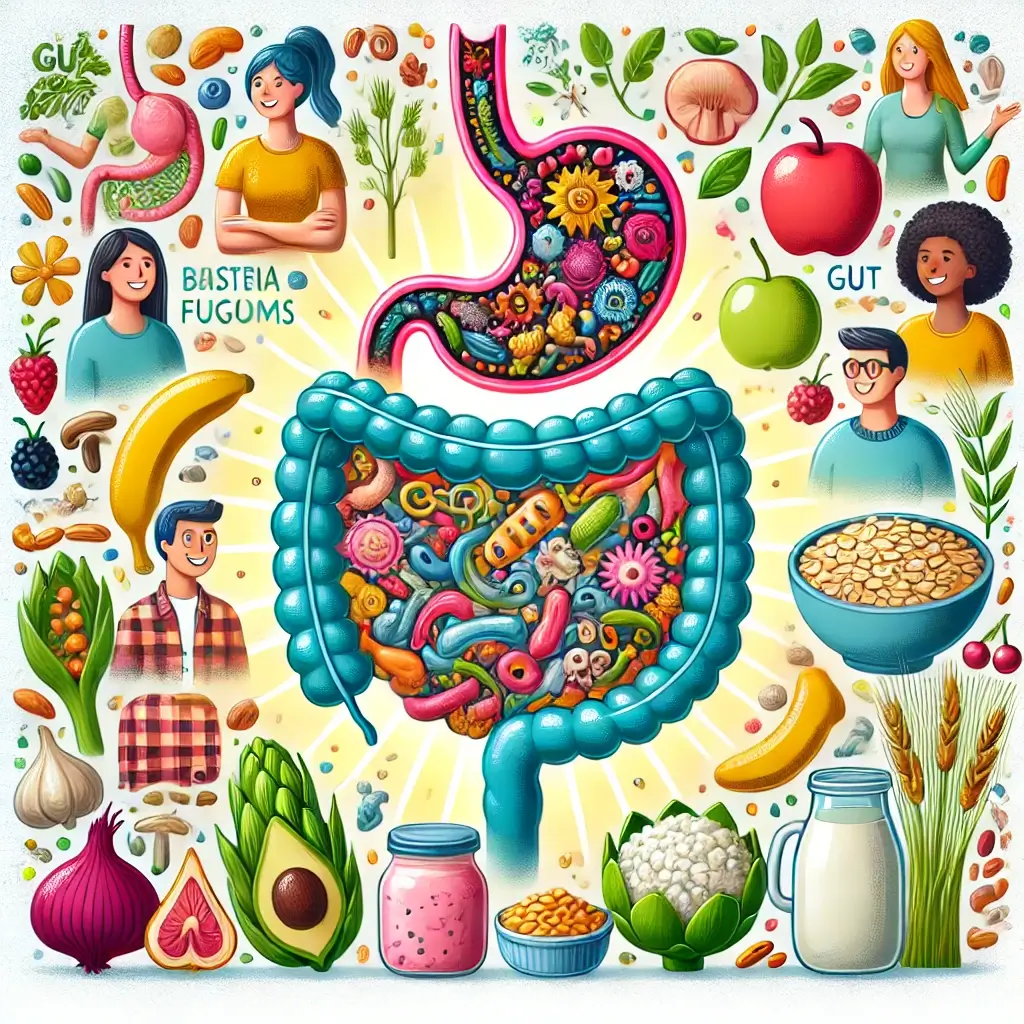Understanding the Gut Microbiome’s Role in Health
In the intricate world of human health, the gut microbiome has emerged as a critical player. Comprising trillions of bacteria, fungi, and other microorganisms, this ecosystem resides primarily in the large intestine and influences everything from digestion and immunity to mental health and chronic disease risk. Recent research has revealed that gut health isn’t merely about avoiding discomfort like bloating or constipation—it’s deeply connected to overall well-being, including mood regulation and the prevention of metabolic diseases.
The Impact of Diet on Gut Health
One of the most accessible and impactful ways to nurture your gut microbiome is through diet. The foods you eat determine the diversity and composition of your gut bacteria, which in turn affects how well your gut functions. Balanced, microbiome-friendly dietary choices can enhance nutrient absorption, fortify your immune system, and even promote mental resilience by regulating the gut-brain axis.
Introduction to Microbiome Health Strategies
This article delves into the science-backed strategies for building and sustaining a robust gut microbiome. From prebiotics to probiotics and dietary diversity to foods to avoid, we’ll explore how small, intentional changes to your meals can foster a healthier, happier you.
Understanding Prebiotics and Their Function
Prebiotics are a type of non-digestible fiber that serves as fuel for beneficial gut bacteria. These fibers are fermented by bacteria, leading to the production of short-chain fatty acids (SCFAs) like butyrate, acetate, and propionate. SCFAs are essential for gut health—they strengthen the intestinal barrier, regulate inflammation, and enhance overall gut function.
Key Sources of Prebiotic Foods
Incorporating prebiotic-rich foods into your diet is straightforward and rewarding. Examples include: Fruits and Vegetables: Bananas, apples, berries, artichokes, and onions are rich in prebiotic fibers like inulin and pectin. Whole Grains: Oats, brown rice, and quinoa are loaded with fibers that nourish gut bacteria. Legumes: Lentils, chickpeas, and black beans not only provide prebiotic fibers but are also excellent sources of protein. A diverse intake of these foods ensures a varied microbial population, which research has consistently linked to better gut and systemic health.
Understanding Probiotics
Probiotics are live bacteria and yeasts found in fermented foods or supplements. When consumed in adequate amounts, they can colonize the gut temporarily and outcompete harmful bacteria. Probiotics have been shown to enhance gut microbial diversity, which is associated with reduced inflammation and improved digestion.
Essential Probiotic Food Sources
Yogurt with Live Cultures: Look for labels indicating active strains like Lactobacillus and Bifidobacterium. Kefir: This fermented dairy drink offers a diverse bacterial profile and may improve lactose digestion. Fermented Vegetables: Options like sauerkraut and kimchi add a flavorful twist while delivering live cultures. Tempeh and Miso: Fermented soy products are rich in probiotics and beneficial for plant-based diets. Probiotic supplementation may also help those with specific gut health issues, such as irritable bowel syndrome or antibiotic-induced dysbiosis.
Foods That May Harm Gut Health
While certain foods nourish beneficial bacteria, others can harm the balance of the gut microbiome: Sugar: High sugar intake feeds harmful bacteria and fungi, promoting dysbiosis and inflammation. Refined Carbohydrates: White bread and pastries are rapidly digested into sugars, creating similar issues. Artificial Sweeteners: Studies have suggested that sweeteners like aspartame may alter the microbiome in ways that impair glucose metabolism.
Guidelines for a Microbiome-Friendly Diet
Focus on Diversity: A diverse diet rich in plants provides a range of fibers, vitamins, and polyphenols to sustain a thriving microbiome. Stay Hydrated: Water aids digestion and ensures the smooth movement of food through the gastrointestinal tract. Practice Moderation: Balance is key. Overloading on even healthy foods can lead to an imbalance in the gut.
Final Thoughts on Gut Health
Your gut microbiome holds the key to improved digestion, immunity, and mental health. By emphasizing prebiotics, probiotics, and dietary diversity while limiting harmful foods, you can cultivate a thriving microbiome that supports your overall well-being. Consistency is essential, as is personalization—consulting with a dietitian can provide tailored advice to meet your unique needs.
Additional Resources
For further reading, explore the references below, which highlight the latest advancements in microbiome research and dietary strategies for gut health.
Scientific References
Gibson, G. R., et al. (2017). Prebiotics for the prevention of acute infectious diarrhoea. The Cochrane Database of Systematic Reviews, 4(CD003048).
Sanders, M. E., et al. (2018). Probiotics and prebiotics in intestinal health and disease: From biology to the clinic. Nature Reviews Gastroenterology & Hepatology, 15(10), 605–616.
Suez, J., et al. (2014). Artificial sweeteners induce glucose intolerance by altering the gut microbiota. Nature, 514(7521), 181–186.
Zhu, Y., et al. (2021). Dietary fibers in health and disease: The role of prebiotics. Foods, 10(10), 2469.
